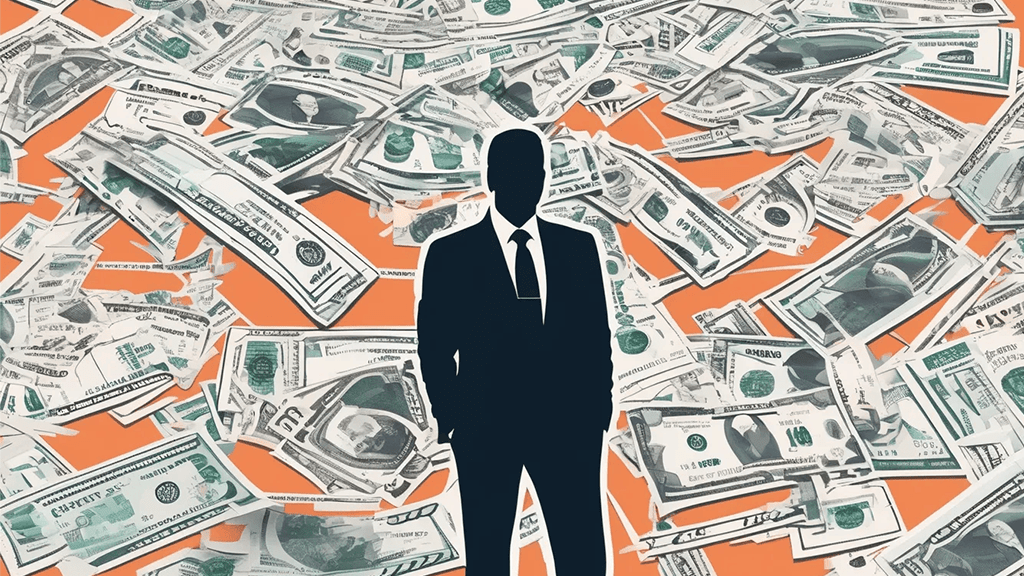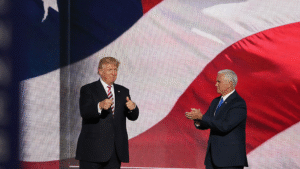
UK Grocery Inflation Eases to 5% in August 2025
UK grocery inflation eases to 5% in August 2025, showing slight relief. Consumers shift to value shopping as branded items rise and dining out declines.

A rising tide floats all ships — but recessions? They expose who’s sailing without a rudder. When markets shudder and confidence dips, cost-cutting becomes the knee-jerk reaction. But the CEOs who make history in downturns aren’t the ones with the deepest cuts — they’re the ones with the clearest convictions.
The best CEOs don’t survive recessions. They build in them.
The Trap of Playing Defense
When the economy contracts, so do most leadership mindsets. Boards talk about burn rates. Investors push for headcount freezes. CFOs brandish spreadsheets like shields. But is that leadership or just fear of a financial model?
Recessions tempt CEOs into playing defense: deferring decisions, delaying launches, and pausing hiring. But this instinct can quietly kill momentum.
Consider the counter-example: Netflix in the early 2000s. While Blockbuster pulled back, Reed Hastings made the radical call to shift to streaming. That wasn’t a hedge — it was a bet. A recession forced clarity, and clarity rewarded boldness.
Great CEOs Reframe the Moment
A recession isn’t just an economic event. It’s a leadership moment. The best CEOs don’t just ask, “How do we survive this?” They ask, “What do we now see more clearly than ever?”
Let’s talk about perspective. A downturn shrinks distractions. It filters noise. It becomes easier to spot bloated workflows, misaligned teams, and initiatives coasting on momentum, not merit.
Satya Nadella reframed Microsoft’s COVID-era slump as a tech acceleration window. He didn’t just pivot; he expanded. And today, Microsoft sits atop an AI and cloud empire it aggressively shaped during uncertain years.
They Shift From Cost-Cutting to Capital Allocation
Visionary CEOs don’t chase cuts — they chase concentration.
They realize a downturn is the perfect time to reallocate — not retreat. Instead of trimming every budget, they reinvest selectively in areas that will compound.
Think:
Can we acquire undervalued IPs or startups?
Can we upgrade tech stacks while vendors are offering discounts?
Can we poach high-performers whom reactive layoffs have orphaned?
Shantanu Narayen at Adobe made aggressive M&A moves during economic lulls, expanding Adobe’s digital media reach just as competitors were downsizing. That foresight created moat after moat.
Culture Is the Real KPI
Here’s where average CEOs get it wrong: they forget that fear is viral. When leaders go quiet or become reactive, cultures destabilize, and trust erodes in whispers.
Great CEOs, in contrast, double down on storytelling. They bring transparency, urgency, and vision — in that order.
Howard Schultz’s return to Starbucks during a downturn wasn’t just about operations. It was a cultural intervention. He reinvested in training, purpose, and customer experience. By the time competitors recovered, Starbucks had reignited its brand from the inside out.
The CEO a Signal, Not Just a Strategist
In recessions, companies become hyper-aware of signals. All under the microscope, every executive decision becomes amplified: hiring, spending, and product prioritization. And the CEO? They become the loudest signal of all.
This is where visionary CEOs separate from reactive ones. They lead from visibility, not just spreadsheets. They show teams that uncertainty isn’t a void — it’s a canvas.
Yes, Brian Chesky of Airbnb slashed costs during COVID-19, but they didn’t stop there. He rebuilt the core value proposition of travel, refocusing Airbnb around connection, authenticity, and local stays. The strategy wasn’t just defensive—it was emotionally intelligent.
And when demand returned? Airbnb didn’t just recover — it redefined travel.
Final Thought: A Recession Isn’t the Storm — It’s the Mirror
You don’t build resilience during a downturn. You reveal it.
What separates excellent CEOs from cautious ones is not the size of the war chest or the sharpness of the finance team. It’s the vision to reimagine in real-time.
Recessions prune the overgrown. But they also fertilize bold strategy. When every other company is watching the rain, great CEOs plant.

UK grocery inflation eases to 5% in August 2025, showing slight relief. Consumers shift to value shopping as branded items rise and dining out declines.

Zelenskiy–Trump summit boosts markets as equities rise and the dollar steadies amid growing peace hopes. Investors await Fed insights at Jackson Hole for further direction.

Statistics Canada is investigating an accidental early release of June manufacturing data, raising concerns over data governance and market integrity. The agency has launched an internal review to strengthen its publishing protocols.

Investor confidence in France is deteriorating as political gridlock and budgetary uncertainty deepen.

June 09, 2025: Canada will host the 50th G7 Summit from June 15 to 17 in Kananaskis, Alberta, amid heightened global tensions and economic rifts.

May 30, 2025: Canada’s economy expanded at an annualized rate of 2.2% in the first quarter of 2025, outperforming the market forecast of 1.7%.

At seventeen, Professor Richard Rose stepped into a world few adults dare to navigate: the world of children fractured by trauma. He wasn’t a clinician then, nor a scholar. He was simply a young man with a heart tuned to the quiet ache of others.

Following a distinguished Law Enforcement career Joe McGee founded The Securitatem Group to provide contemporary global operational specialist security and specialist security training products and services for private clients, corporate organisations, and Government bodies. They deliver a wide range of services, including complete end-to-end protection packages, close protection, residential security, protection drivers, and online and physical installations. They provide covert and overt investigations and specialist surveillance services with a Broad range of weapons and tactical-based training, including conflict management, risk and threat management, tactical training, tactical medicine, and command and control training.

Jay Wright, CEO and Co-Owner of Virgin Wines infectious energy, enthusiasm, passion and drive has been instrumental in creating an environment that encourages talent to thrive and a culture that puts the customer at the very heart of every decision-making process.

Fabio de Concilio is the visionary CEO & Chairman of the Board at Farmacosmo, a leading organization dedicated to mental health and community support services. With a deep commitment to identifying and meeting customer needs, Fabio ensures that high standards are maintained across the board.

Leave us a message
Subscribe
Fill the form our team will contact you
Advertise with us
Fill the form our team will contact you